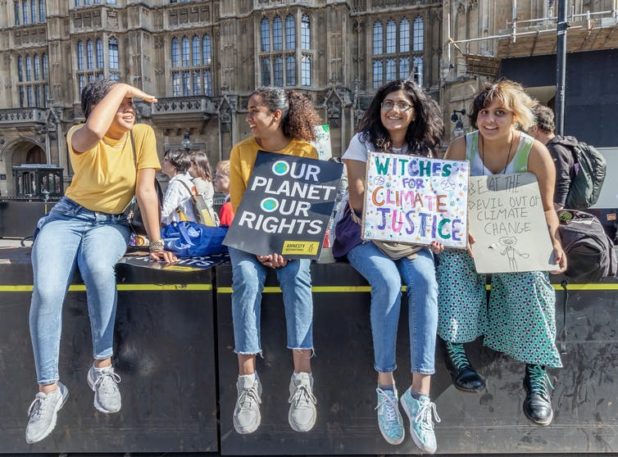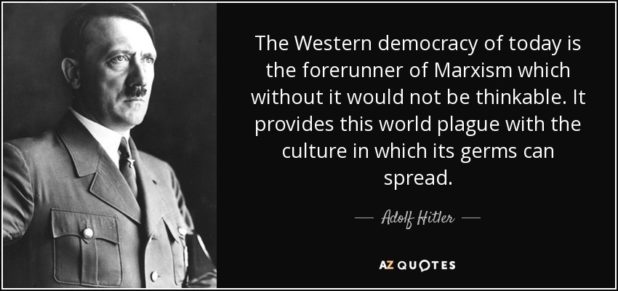
This is one of the pictures this article used to make its case
What could possibly go wrong?
In an alternative “COVID-19 free” world, voters would have gone to the polls on May 7 to participate in local or mayoral elections in many parts of the UK. For most young people though, the absence of elections this year is likely to have gone unnoticed and unmourned – despite the fact that for many this means they will have to wait another year before they can vote for the first time.
The lack of engagement and participation of young people in local and mayoral elections is a frequent theme in post-election analysis. But the current pandemic has also made many young people feel they are uniquely democratically unrepresented and voiceless.
So most young people don’t care, but they feel unrepresented.
Huh?
Research indicates that young people have not been consulted about decisions during the pandemic that have radically altered their current and future lives. Under-18s are also excluded from submitting Downing Street briefing questions – this is despite the fact that in Scotland 16 and 17-year-olds can vote in Scottish Parliament and local elections.
From 2021, Wales will also allow all 16 and 17-year-olds to vote in local and Welsh Assembly elections. But this is not the case for young people living in England – or in Northern Ireland. Even though Northern Ireland’s devolved Assembly passed a motion in 2012 supporting “Votes at 16”, it does not have the powers to lower the voting age.
…
There is however no current consideration in Westminster of the devolution of franchise powers to allow people in England and Northern Ireland to consider introducing “Votes at 16” in local or regional elections. This means that where young people live determines if and when they can vote.
That’s completely unfair, I agree.
What should determine if they can vote or not should be more concrete – an IQ test, paying taxes, serving in the military, something that proves you’ve contributed to society in some way.
Why is this thing allowed to vote?
The people who invented democracy never thought just staying alive to a certain age should be enough to let you have a say in anything.
The Lowering the Voting Age in the UK project has analysed the effects of the bespoke and partial introduction of “Votes at 16”. It has revealed that the contested relationship between maturity, adulthood and enfranchisement has split political and public opinion – which is now evenly split between those who believe the voting age should be lowered and those who don’t.
Unlike in 1969, when the voting age was lowered from 21 to 18, contemporary debates about voting age reform have failed to resolve the conundrum of whether young people should be given the vote at the beginning of their transitions to adulthood (16) or when they are legally recognised by the state to be an adult (18).
…
Most UK political parties, however, now support “Votes at 16”, though they have failed to sufficiently prioritise and collaborate on the issue to ensure its successful passage through Westminster. But it still remains a popular general election pledge.
But many Conservatives and their supporters oppose the universal lowering of the voting age to 16. The fear is the 1.5 million new young voters would most likely be Labour supporting pro-Europeans. Gridlock on the issue at Westminster has ensued.
Funny how people who don’t work for a living disproportionately vote for a party called “Labour.”
What’s even funnier though is that the people they’re voting for don’t work for a living either.
But the campaign for “Votes at 16” extends beyond Westminster – and there are a growing number of supportive local authorities and city-region mayors in England. But advocates outside of Westminster have continued to focus on universal voting age reform across the UK rather than campaigning for the devolution of franchise powers similar to those in Scotland and Wales.
This approach has denied people in England and Northern Ireland the same opportunities as their peers in Scotland and Wales to consider the case for “Votes at 16” on a local, regional, or national basis. It also fails to acknowledge the significant support for lowering the voting age to 16 among young people.
All of which highlights how the current situation is unsustainable and unfair. The devolution of franchise powers in England and Northern Ireland must be considered if the UK government is to honour its election promise to “level up” the UK. And it’s hoped that in time a parliamentary debate on this important issue will be finally scheduled.
Nobody reading this has ever lived in a democracy, and I doubt anybody ever will.
Democracy has always been a form of ethnocentric militarism, and this was always how it was understood and applied from ancient Athens until the Jews started infiltrating academia and the media in the Western world, primarily the English-speaking world and France.
Democracies do not let women vote, they do not let foreigners vote, they do not let children vote, they do not let farm animals vote, they do not let parasites vote, and all for the same reason – “Democracy” means “the power of the people,” and the only power any people have are the men who chop the invaders’ heads off.
Everybody else is at best a tolerated extra.

Ironically, this fella’s regime had more in common with actual democracy than the supposed democrats who beat him
